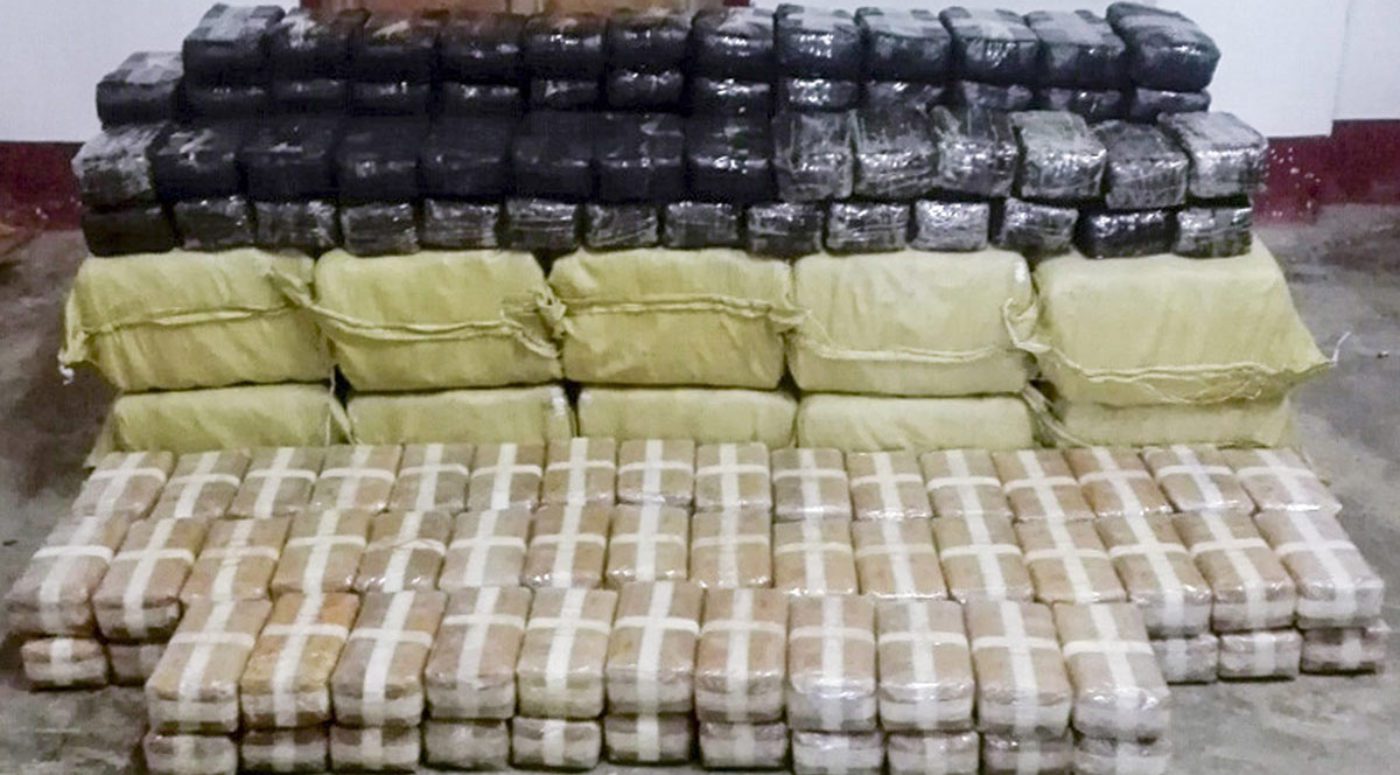

Staring at a charge for the production of controlled drugs and worried about the maximum sentence? You’re not alone. This concern is common among clients, as many people find themselves in similar situations facing these – at times – very confusing charges. Whatever your situation, it is vital to seek advice from a trusted solicitor as early as possible. While the punishment for this offence can be severe, solicitors can assist in potentially reducing any prison time. This article will cover the basics of the offence, i.e. what constitutes the production of controlled drugs, and discuss the maximum possible sentence you might face. We’ll also look at key points from the sentencing guidelines and explain how engaging a solicitor can help lessen your sentence.
What is the offence of production of controlled drugs?
The offence of production of controlled drugs in England is a serious matter governed by the Misuse of Drugs Act 1971. Under this act, the unlawful production, manufacture, cultivation, or any form of creation of controlled substances is strictly prohibited. The specific section of the act which deals with this offence is Section 4.
To secure a conviction for the production of controlled drugs, the prosecution must prove several critical elements beyond a reasonable doubt:
- Existence of Controlled Drugs: The substances involved must be classified as controlled drugs under the Misuse of Drugs Act 1971. These are categorised into Classes A, B, and C, depending on their potential for harm.
- Production Activity: The defendant must have been involved in an activity that constitutes “production.” This includes any process of manufacturing, creating, extracting, or preparing the controlled drugs.
- Knowledge and Intent: The prosecution must demonstrate that the defendant knew that they were producing controlled drugs and intended to do so. Ignorance of the nature of the substance generally does not constitute a valid defence.
- Lack of Authorisation: The activities in question must be unauthorised. Licenses and permissions under the Misuse of Drugs Regulations 2001 or other relevant legal frameworks may provide specific exceptions, mainly for medical, scientific, or certain industrial purposes.
Examples of the offence of production of controlled drugs include:
- Growing cannabis in a home or greenhouse without proper authorization.
- Manufacturing methamphetamine or “meth” in a clandestine laboratory setting.
- Synthesising MDMA in a chemical laboratory without legal permission.
- Converting morphine into heroin through a chemical process.
- Processing coca leaves to produce cocaine.
- Producing LSD in a controlled environment using chemical synthesis.
- Illegally manufacturing ketamine, a controlled substance often used as a recreational drug.
- Creating synthetic cannabinoids in a laboratory, mimicking the effects of cannabis.
- Illegally producing GHB, a central nervous system depressant often used as a party drug.
- Growing opium poppies and extracting opium illegally to produce opioid drugs like heroin.
What is the maximum sentence for production of controlled drugs?
The maximum sentence for the offence of production of controlled drugs in England and Wales varies depending on the classification of the drug involved under the Misuse of Drugs Act 1971.
According to the Sentencing Council guidelines:
- Class A drugs (e.g., heroin, cocaine, ecstasy): The maximum sentence is life imprisonment or an unlimited fine, or both.
- Class B drugs (e.g., cannabis, amphetamines): The maximum sentence is 14 years’ imprisonment or an unlimited fine, or both.
- Class C drugs (e.g., anabolic steroids, benzodiazepines): The maximum sentence is 14 years’ imprisonment or an unlimited fine, or both.
The exact sentence imposed will depend on various factors, including the scale of the production, the role of the offender, and any mitigating or aggravating circumstances. Anybody facing such charges should urgently seek expert legal advice from an experienced drugs offences solicitor to understand their specific situation and any potential defences that might be available.
What factors influence the sentencing of production of controlled drugs?
When it comes to the offence of production of controlled drugs, sentencing can vary significantly based on several factors that the judge will consider. As mentioned, the Sentencing Council provides comprehensive guidelines to ensure consistency and fairness in sentencing.
The main considerations a judge will take into account are:
- Severity and Quantity: The scale of the production operation, including the types and quantities of drugs involved, plays a critical role. Larger, more organised operations or those involving higher quantities of drugs typically receive harsher sentences.
- Role in the Offence: The defendant’s role within the operation is crucial. Those seen as organisers or leaders of a production network are likely to receive more severe sentences compared to those with lesser roles, such as couriers or assistants who may have acted under duress or coercion.
- Intent and Involvement: The level of intent and duration of involvement in the drug production also influences sentencing. A person who has been producing drugs for an extended period and who planned their actions meticulously will likely face a sterner penalty than someone who was marginally involved for a short duration.
In addition, the judge will consider aggravating and mitigating factors, which may make punishment more or less severe respectively.
- Several aggravating factors contribute to the severity of sentencing considerations. Previous convictions related to drug offences or similar crimes are significant aggravating factors, indicating a disregard for legal boundaries and a pattern of illegal behaviour. The involvement of minors or vulnerable individuals in the production process escalates the seriousness of the offence, as it exploits those who are particularly susceptible to harm from drug-related activities. The location of drug production near schools, playgrounds, or residential areas heightens concerns about potential harm to the community, aggravating the offence. The presence of firearms or weapons in connection with drug production increases the level of danger associated with the operation and aggravates the offence further. Evidence suggesting cross-border or organised criminal group involvement in drug production underscores the scale and sophistication of the operation, warranting harsher sentencing considerations.
- Conversely, mitigating factors can potentially reduce the severity of sentencing for those involved in the production of controlled drugs. Demonstrating genuine remorse or accepting responsibility for the actions committed may indicate a readiness to rehabilitate and can be considered in mitigation. Having a minor or peripheral role in the drug production operation, where the individual’s involvement was limited or less integral, might mitigate the offence. Providing substantial assistance to law enforcement during the investigation, such as cooperating fully or providing valuable information leading to arrests, demonstrates a commitment to rectifying wrongdoing and can mitigate the sentence. Additionally, a lack of previous convictions unrelated to drug offences may suggest a lower likelihood of reoffending and could be considered in mitigating the severity of the punishment imposed. These factors collectively guide judicial decisions in balancing accountability with opportunities for rehabilitation in cases involving the production of controlled drugs.
How can a solicitor help with reducing the sentence for production of controlled drugs?
Clearly, facing a charge for the production of controlled drugs can have serious consequences. The potential penalties include significant custodial sentences, fines, or both. A qualified criminal defence solicitor can play a very important role in helping to reduce your sentence.
A solicitor who specialises in drug-related offences possesses the expertise and experience needed to navigate the complexities of criminal law. They can help reduce your sentence by:
- Negotiation and Representation: A solicitor can present mitigating circumstances to the court and negotiate with the prosecution for a lesser charge or a reduced sentence.
- Evidence Review: An experienced solicitor will meticulously review the evidence against you, identifying any weaknesses or procedural errors that could be used in your favour.
- Guidance and Support: A solicitor provides essential guidance through the legal process, ensuring you fully understand your options and the potential outcomes.
Selecting the right solicitor is crucial for your defence. Here are key factors to consider:
- Experience and Specialisation: Look for a solicitor with significant experience in handling drug-related offences, particularly cases involving the production of controlled drugs.
- Reputation: Seek recommendations and read reviews to gauge the solicitor’s reputation. A strong track record with favourable outcomes in similar cases can be an indicator of competence.
- Professional Credentials: Ensure the solicitor is properly accredited and a member of recognised legal bodies, such as the Law Society.
- Communication Skills: Your solicitor should be approachable and able to explain complex legal terms in plain language. Good communication is essential for a successful solicitor-client relationship.
Where to get more help
Concerns about the potential sentence for the production of controlled drugs can be overwhelming, and you undoubtedly have several important questions on your mind. For more help and guidance on sentencing and other matters related to the offence of the production of controlled drugs, get in touch with the team at Stuart Miller Solicitors today. Our friendly staff are on hand to assist with your case, whatever your situation.
OUR COMMITMENTS TO YOU:
-
Responsive
A legal expert will consult you within 24 hours of making an enquiry.
-
Empathetic
We will always treat you with trust, understanding and respect.
-
Specialised
Your case will be handled by an expert who specialises in your type of offence.
-
Proactive
We will take early action to end proceedings as soon as it is practically and legally possible to do so.
-
Engaged
You will be kept updated on your case at all times. We will provide a named contact available to answer your questions.
-
Caring
We understand this is a difficult and stressful time for you and your family. Our team will support you every step of the way.
-
Tenacious
We will never give up on your case. We fight tirelessly to get you the best possible outcome.

